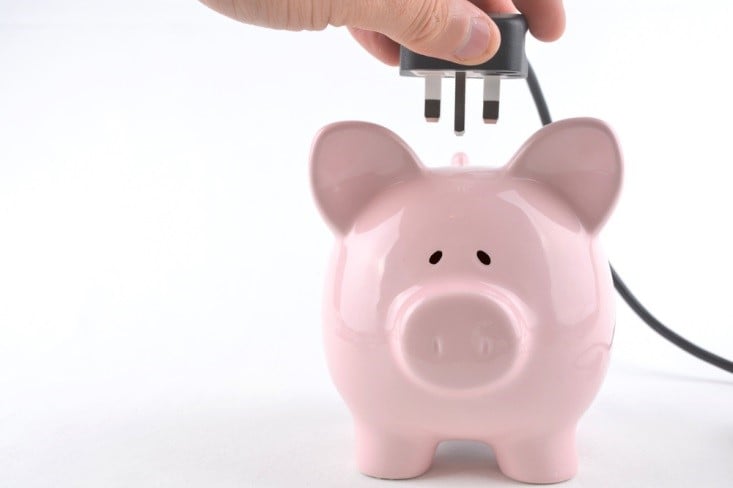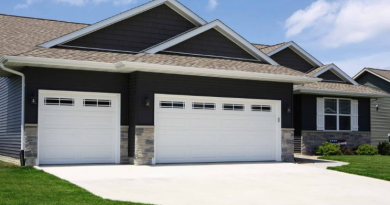5 Energy Vampires That May Be Bleeding Your House Dry
Contents [hide]
Most modern homeowners try their hardest to cut back on their wasteful habits — if not for the environment, then for the substantial savings it can make on monthly bills. Still, Americans as a whole squander nearly $130 billion every year on energy that does them no good.
For the most part, this waste comes from “energy vampires,” the secret leeches that drain energy without an owner recognizing the problem. Most American homes harbor dozens of energy vampires, but here are the five most common types that may be sucking your home’s energy and keeping your energy bills sky-high.
1. Unused Electronics
For the sake of convenience, you probably leave most of your favorite electronics — your desktop computer, your television, your game console, and others — plugged in at all times. However, whatever advantages you gain from ease of use, you lose from wasted energy and higher bills. Even devices that are powered off draw energy when they are plugged in. Dormant cellphone chargers pull on average .26 watts, and when a phone is connected (even a fully charged one) that consumption spikes to 2.24 watts.
The amount of energy drawn from one unused electronic appliance is not enough to make a significant impact on carbon footprint or month-end statement, but when you consider the large number of electronics you leave plugged in around your home, you may expect excess payments of 10 percent, or higher. Fortunately there are a few solutions:
- Unplug your electronics when you aren’t using them.
- Plug your devices into a power strip with a single switch, and turn off the entire strip when you are finished.
- Use a digital timer to cut power to electronics during certain times of day.
2. Inefficient Appliances
Home appliances — to include refrigerators, dishwashers, laundry machines, ovens, and more — use about two-thirds of a home’s energy, However, not every house’s appliances draw the same amount. Older, cut-rate appliances may save you money with the initial investment, but lower quality machines tend to be inefficient when it comes to energy usage, which means for the rest of their lives, these appliances will cost extra to own and operate. The best solution is to purchase and utilize only the most efficient appliances, like EPA-rated Energy Star machines. Such high-efficiency appliances can shave as much as 30 percent off energy bills, which will amount to tens of thousands of dollars in savings over a homeowner’s lifetime.
3. Air Leaks
More likely than not, you have noticed a handful of uncomfortable drafts around your house where the air is too warm or too cool, depending on the time of year. What you may not realize is that these drafts are evidence of a leaky home that is wasting your energy and your money. Heating and cooling are exceedingly energy intensive activities, so when your home is not perfectly air-tight, about 33 percent of your energy bill is simply leaking out through the cracks. Plus, air leaks can actually ravage a home’s structure as well, causing walls’ internal components to swell and rot.
You can attempt to find and seal the air leaks yourself, but usually, faults are too small or hidden to fix. A much better solution is to hire an experienced maintenance team who knows how to give your house the perfect airflow. They will investigate your ductwork, repair any damaged heating or cooling units, and ensure an energy-efficient environment.
4. Improper Temperatures
Usually, homeowners are careful to monitor their thermostats to avoid overpaying on their energy bills, and if you aren’t, you should start soon. However, plenty of business spaces are less vigilant regarding interior temperatures. Due to the large numbers of people and electronics in an office, it can be difficult to predict a comfortable temperature; thus, rooms are often over-heated or over-cooled, wasting energy and making employees extremely displeased.
Managers and building owners should be more wary of workers’ complaints in regards to temperature. Not only will happy employees be more productive, but a properly regulated thermostat can create radical savings on utilities bills.
5. Wasteful Watering
When you use water inside and outside your home, you are using energy. Therefore it is important to be mindful of where and when you use water, as well as how much water you use. During hot summer months, it is scarcely advisable to use water at all during daylight hours; for one, as much as 25 percent of outdoor water use is lost to evaporation, and indoor water use leads to uncomfortable warmth and humidity. Thus, it is best to complete all water-related activities at night.






